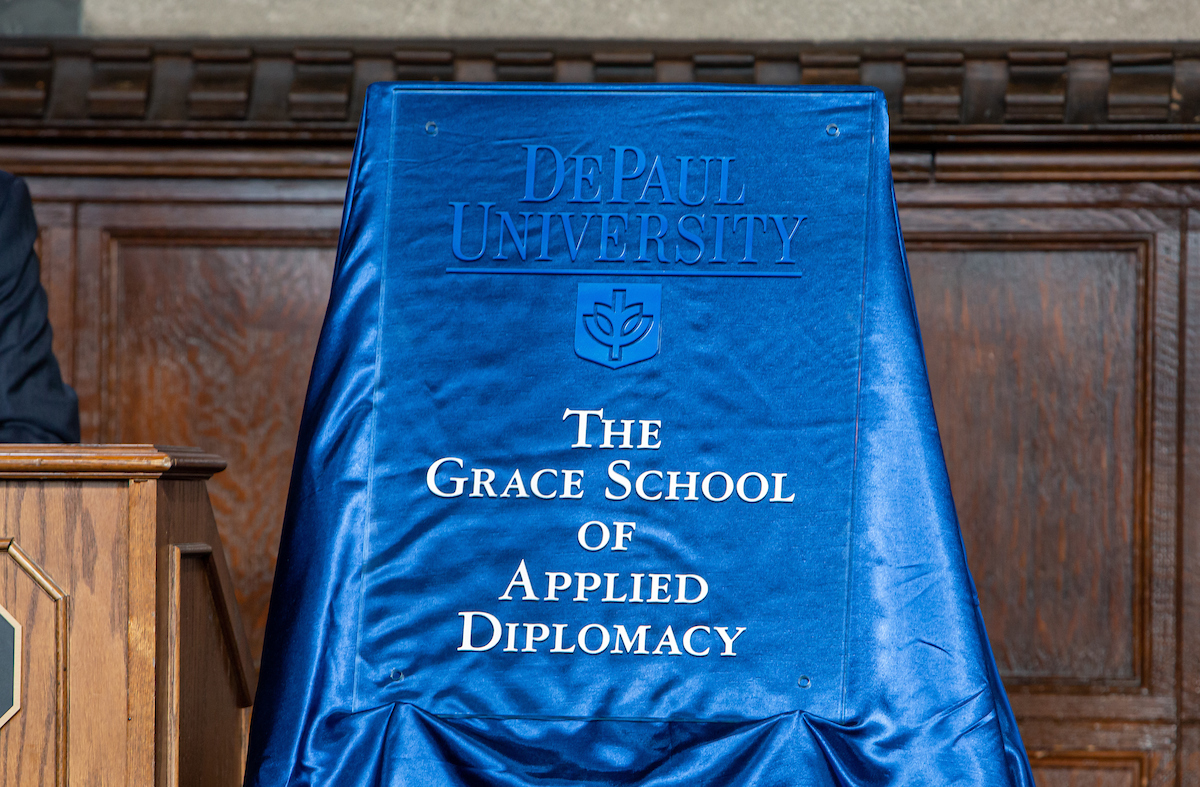 (DePaul University/Randall Spriggs)
(DePaul University/Randall Spriggs)Against a backdrop of an ongoing war in Ukraine, authoritarians taking office in countries around the world and political leaders in the United States accusing each other of election crimes, DePaul’s
Grace School of Applied Diplomacy is set to host a two-day virtual conference Oct. 13-14 titled “Diplomacy and the Future of Democracy: Transprofessional Responses to Contemporary Diplomatic Challenges.”
The conference will feature four keynote addresses from political leaders and scholars in the field of diplomacy, and four panels composed of faculty from DePaul and scholars from universities around the world. Those interested can see the full schedule of events and register
online.
“Attendees will hear from a remarkable group of scholars, activists and leaders from around the world who will discuss the many democratic challenges we face across the globe and the need for a new type of diplomacy, which features collaboration among state-sponsored, non-state actor and grassroots diplomats,” says David Wellman, director of The Grace School. “The conference will explore strategies proposed and employed by practitioners and scholars of diplomacy across multiple vocations and contexts to support diplomatic cooperation and collaboration aimed at the promotion and preservation of democracy."
Michael McFaul, a U.S. Ambassador to Russia under President Barack Obama, will deliver a keynote address on the conference’s second day. Having served five years in the Obama administration, first as special assistant to the president and senior director for Russian and Eurasian affairs at the National Security Council at the White House (2009-12), then as U.S. ambassador to the Russian Federation (2012-14), McFaul will speak on the subject of “The Ukraine War: Lessons for Democracy and Diplomacy.”
In addition to McFaul, Walaa al-Boushi, a former minister of youth and sport in Sudan, also will deliver a keynote address Oct. 14 on “Diplomacy and the Struggle for Democracy in Modern Sudan.”
On the opening day of the conference, Andy Knight, a distinguished professor of political science at the University of Alberta, will address attendees on the topic, “Democracy and Good Governance.” Wellman will speak on “The Role of Citizen Diplomacy in the Promotion of Democracy.”
Shailja Sharma, chair of DePaul’s Department of International Studies, will participate in one of two panels featuring DePaul faculty. She will discuss the current political realities of India on the panel, titled “Democratic Backsliding, the Challenge of Illiberal Democracy and Diplomacy.”
In a second panel, John Mazzeo, a DePaul associate professor in public health, will join the co-directors of The Center for Community Health Equity — DePaul’s Maria Ferrera and Rush University’s Raj Shah — to discuss the topic “Global Public Health, Diplomacy and Democracy.”
Two other panels will cover the topics of “Reconsidering U.S. Democracy and U.S. Diplomacy” and “Diplomacy and Democracy on the Ground: The Work of Global Citizen Diplomats.”
Founded in 2019, The Grace School aims to train future practitioners of diplomacy across all vocations — from those pursuing careers in the foreign service to those who want to build bridges as NGO leaders, private sector actors, scientists, artists, religious leaders, community organizers and activists.